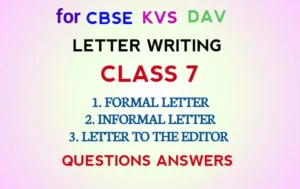Are you struggling with English verb tenses? Take the Tense Quiz in English Grammar to improve your fluency and accuracy. This comprehensive article covers everything you need to know about verb tenses, including examples, tips, and common mistakes.
The Tense Quiz in English Grammar is designed to assess your knowledge of verb tenses and help you identify areas for improvement. In this article, we will take you through a comprehensive journey of various verb tenses, providing insights, examples, and practical tips to enhance your language skills.
Tense Quiz in English Grammar
At the heart of this article lies the Tense Quiz in English Grammar, a challenging yet enlightening assessment of your understanding of verb tenses. By taking this quiz, you will be able to gauge your current grasp of various tenses and identify any weak areas. Let’s get started by taking the quiz, and later, we’ll explore each tense in detail to reinforce your understanding.
Common Mistakes and How to Avoid Them
English verb tenses can be confusing, and even proficient speakers make mistakes from time to time. Let’s discuss some common mistakes and how to avoid them to improve your language accuracy:
1. Confusing Present Simple and Present Continuous
Many learners often mix up the Present Simple and Present Continuous tenses. Remember, the Present Simple is used for habitual actions and general truths, while the Present Continuous is used for actions happening at the moment or during a specific period.
Incorrect: I am studying English every day. Correct: I study English every day.
2. Misusing Past Perfect Tense
The Past Perfect Tense is used to express an action that occurred before another action in the past. Avoid using it when there is no need to emphasize the sequence of events.
Incorrect: She had already eaten before he arrived. Correct: She ate before he arrived.
3. Overusing Present Perfect Tense
While the Present Perfect Tense is versatile, it should not be overused. Avoid using it when a simple past tense is more appropriate.
Incorrect: I have watched that movie yesterday. Correct: I watched that movie yesterday.
4. Not Distinguishing Future Tenses
Be clear about the distinction between the various future tenses. Use the Simple Future for predictions or spontaneous decisions, the Future Continuous for ongoing actions, the Future Perfect for completed actions, and the Future Perfect Continuous for actions that continue up to a point in the future.
Incorrect: They will finish their project at 5 PM yesterday. Correct: They will finish their project at 5 PM tomorrow.
Tense Quiz Practice Round
Now that we’ve covered various verb tenses in detail, let’s have a practice round to reinforce your understanding.
Tense Quiz in English Grammar is a comprehensive assessment tool. This is designed to evaluate students’ understanding of various grammatical concepts in Tense.
You may also like
FAQs (Frequently Asked Questions)
Q: What is the best way to improve my understanding of verb tenses?
A: Practice, practice, and practice! Engage in conversations, read English books, and take quizzes like the Tense Quiz in English Grammar to reinforce your knowledge.
Q: Can I mix different tenses in one sentence?
A: Yes, sometimes mixing different tenses is necessary to express complex ideas or relationships between actions, but be careful to use them appropriately.
Q: Is it essential to memorize all verb tenses?
A: While memorizing verb tenses is helpful, focus on understanding their usage in different contexts, as this will lead to more natural and fluent communication.
Q: How can I avoid making tense-related mistakes in writing?
A: Proofread your writing carefully, paying special attention to verb tenses. Additionally, use grammar-checking tools to catch any errors you may have missed.
Q: Are there any irregular verbs that don’t follow the typical tense patterns?
A: Yes, some verbs have irregular forms in certain tenses. It’s essential to learn these irregular verbs to use them correctly in sentences.
Q: Can I use contractions in formal writing?
A: While contractions are generally considered informal, they are acceptable in most formal writing scenarios, especially in conversational pieces like blog posts.
Conclusion
Congratulations! You’ve successfully completed the Tense Quiz in English Grammar and learned about various verb tenses, their usage, and common mistakes to avoid. Mastering verb tenses is a key aspect of becoming fluent in English and enhancing your language skills. Keep practicing, reading, and engaging in conversations to continue improving. Remember, language learning is a journey, and every step you take brings you closer to fluency.
So, keep up the good work, and may your language proficiency soar to new heights! Happy learning!







